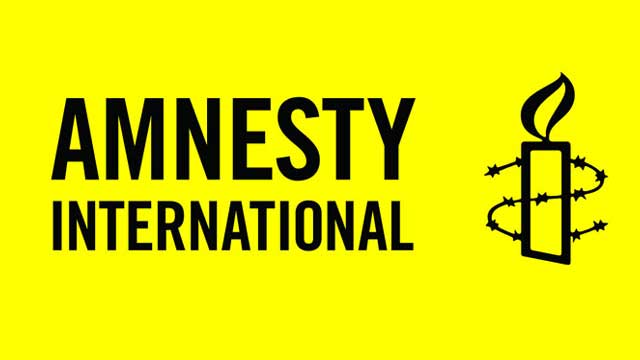Garment workers in Bangladesh have continued to face a climate of fear and repression as corporate impunity for business-related human rights abuses remains unchecked amid state sanctioned crackdown on workers’ rights, said Amnesty International.
The international rights organisation came up with the observation in a report marking the International Workers’ Day on Wednesday. It mentioned the Rana Plaza tragedy, fire incident at Tazreen Fashions, and ‘crackdown’ on protesting workers in 2023.
Amnesty noted that last month marked the 11th anniversary of the collapse of Rana Plaza, which left more than 1,100 garment workers dead and thousands injured. It was preceded by a deadly fire in Tazreen Fashions Factory five months earlier resulting in the death of at least 112 workers trapped by blocked fire exits and padlocked factory premises.
Both disasters were caused by wholly negligent workplace monitoring and are shocking examples of business-related human rights abuses, it said.
The Bangladesh Legal Aid and Services Trust (BLAST) and other NGOs filed compensation cases in connection to the Rana Plaza collapse and Tazreen Fashions against relevant state authorities, as well as local building and factory owners, but these have not been resolved in the last eleven years.
The report also mentioned that garment workers in Bangladesh are paid poverty wages and face innumerable obstacles including harassment, intimidation and violence, as well as legal hurdles when attempting to voice their demands for justice, wages, adequate safeguards and working conditions.
The death of Shahidul Islam, president of the Bangladesh Garment and Industrial Workers Federation (BGIWF) in Gazipur district committee, has been mentioned as an example of repression in the report.
In June 2023, he was killed while trying to secure unpaid wages for the workers. In the same year, at least four garment workers have died during protests around the national minimum wage between October and November.
The international rights body estimated that since the protests in 2023, at least 35 criminal cases have been filed against garment workers with the first information reports (FIRs) accusing around 161 named workers and an estimated total of between 35,900 – 44,450 unnamed workers for taking part in the protests. At least 25 out of the 35 recent cases have been filed by the factories who are believed to sell to major global fashion brands and retailers.
Despite some global reforms that followed the Rana Plaza tragedy, such as the international accord for health and safety in the garment and textile Industry, occupational safety remains non-existent for many workers in many other sectors in Bangladesh.
Nadia Rahman, deputy regional director for South Asia at Amnesty International, said, “We call on the government to remove the limits on compensation for occupational injuries under labour law, ensure those affected receive adequate compensation, and introduce a national data repository on workplace deaths and injuries to ensure transparency and fill the current gaps in official data.”
Bangladesh must also ratify and then comply with the two key International Labour Organization (ILO) conventions 155 and 187 on occupational health and safety along with ILO conventions 102 and 121 on minimum standards of relief for victims of occupational injuries and deaths.
“We also urge the government of Bangladesh to immediately end the repression of worker rights and ensure that they can exercise their right to freedom of expression and association, including by being able to form and join trade unions at the factory level, without fear of reprisals,” she added.





